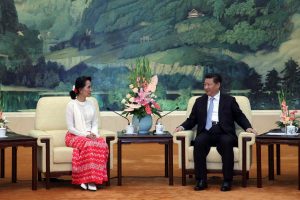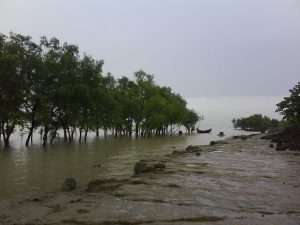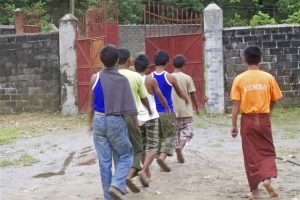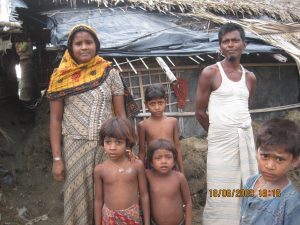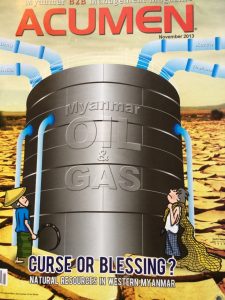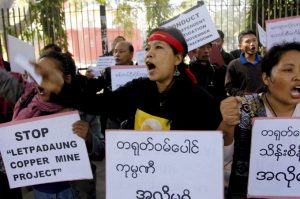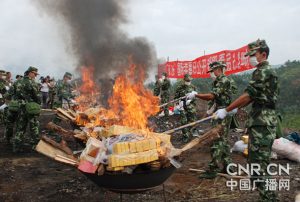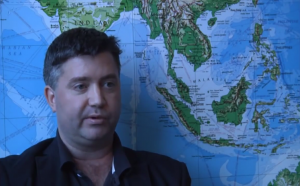A Pariah No More: How Over-reliance on China Spurred Myanmar’s Reforms
Memo #380 By: Jonathan T. Chow – jchow [at] umac.mo and Leif-Eric Easley – easley [at] post.harvard.edu How Over-reliance on China Spurred Myanmar’s Reforms In late 2010, Myanmar’s repressive military junta transformed itself into a nominally civilian government, over two decades after it had seized power. Upon becoming president in early 2011, former general Thein Sein unexpectedly launched wide-ranging […]
Migration Crisis on Southeast Asian Shores: Individual or Regional Responsibility?
Memo #338 By Kazi Fahmida Farzana – fahmida [at] uum.edu.my On May 10–11, 2015 some 2,000 new Rohingya migrants from Myanmar landed in Malaysia and Indonesia. Many others are believed to have lost their lives in this desperate journey, while hundreds are still drifting on the high seas. By seeking asylum on the shores of Southeast […]
Fighting for Myanmar’s Child Soldiers
Memo #324 Efforts to release some 70,000 child soldiers in Myanmar face multiple challenges. By Kai Chen – chenkai [at] zju.edu.cn Since Myanmar’s independence in 1948, the nation’s interest groups—in particular its ethnic minorities and the national military—have been at odds on how to rule Myanmar. The result has been a long simmering armed conflict […]
In Myanmar, Let’s Make a Deal
Memo #320 Myanmar’s Nationwide Ceasefire Agreement has the potential to end decades of conflict, but a political solution will have to wait. By Brandon Miliate – bmiliate [at] gmail.com Today there is the real possibility that Myanmar’s sixty-year history of ethno-national insurgencies might be coming to an end. After decades of stagnation and intermittent fighting, […]
The Rohingya, Ethnic Minorities, and Myanmar’s Enduring Dilemma
Memo #285 By Kazi Fahmida Farzana – fahmida [at] uum.edu.my Will Myanmar’s Political Transition be able to Solve the Lingering Nationality Question of its Ethnic Minorities? Myanmar in recent years has been experiencing substantive political changes in its political system with implications for its domestic policies and international relations. Since its November 2010 national elections, […]
Dealing with the Resource Curse in Myanmar: UN Global Compact and Institutional Capacity
Memo #276 By Yves Tiberghien – yves.tiberghien [at] ubc.ca Since it began its gradual opening and domestic process of change, Myanmar has become a great target of opportunity for a myriad of foreign players, especially global investors interested in its vast energy potential and other resources. The challenge for the country is how to turn […]
The Politics of Mining in Mongolia and Burma/Myanmar
Protests against mining projects reveal contrasts in the political impact of resource extraction in Mongolia, an established 23 year-old democracy, and Burma/Myanmar, a liberalizing authoritarian state. Two similarities are apparent in the domestic tensions surrounding Mongolia’s Oyu Tolgoi and Burma’s Letpadaung copper mines: both governments and populations are keen to balance Chinese influence in their economies; and both struggle to balance development goals with local grievances. Yet, the differing role of the countries’ politicians means that the protests have different outcomes.
Methamphetamine Smuggling along the Myanmar-China Border Threatens Local Communities
The Golden Triangle, the mountainous region bordering Myanmar, Vietnam, Laos and Thailand, is known as a major centre for drug production. Since Khun Sa, kingpin of the region’s heroin trade, was forced into retirement in 1996, large-scale production of methamphetamine has developed along the Myanmar-China border. Unlike heroin, methamphetamine can be created from commercially available chemicals, commonly found in cold and flu medications. The easy availability of raw materials means that the profits generated from the production of methamphetamine are higher than those from heroin.
Dramatic Reforms in Burma (Video Interview with Nelson Rand)
Memo #113 – Dramatic changes appear to be underway in Burma since a quasi-civilian government took office in March 2011.
Although there are many uncertainties over the extent and sincerity of the new government’s initiatives for reforms, which have been both political and economic, one thing is clear: the reforms that have been initiated in Burma since March 2011 have been the most significant in over half a century. The country is at a critical juncture, and while it is still too early to tell just how developments will play out, for the first time in years there is reason to be optimistic about Burma’s political direction.
The Shifting Role of Law in Myanmar
Memo #84 – A Myanmar court on March 29, 2011 granted bail to Australian businessman Ross Dunkley accused of assaulting and unlawfully confining a sex worker. Dunkley said he would fight the charges. “I just can’t believe there is a case,” Agence France Press quoted him as saying. “There is no witness, there is no evidence. “
